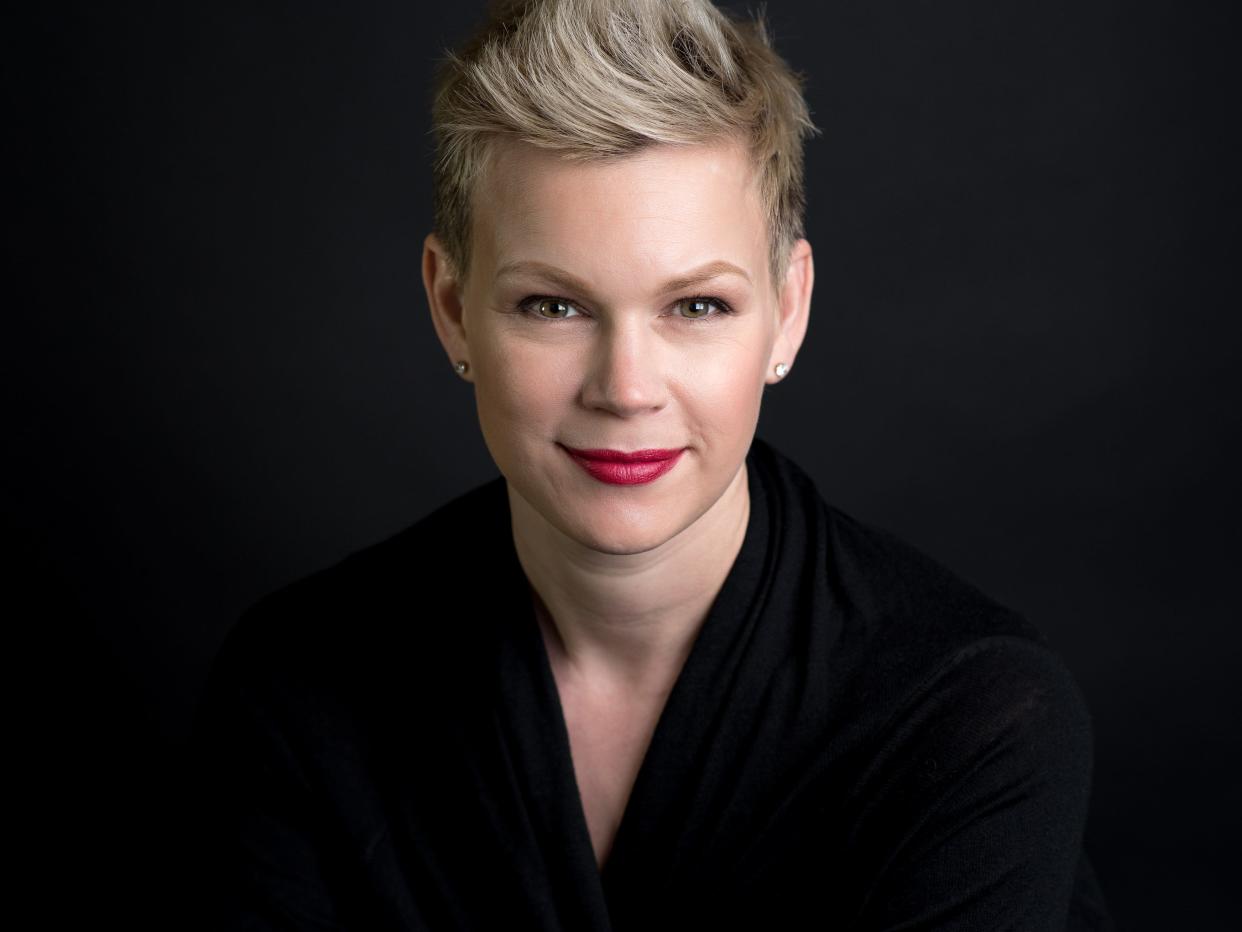A financial therapist was $19,000 in debt in her 20s. Loud budgeting helped her pay it off in 1 year.

Amanda Clayman, a financial therapist, was $19,000 in debt in her 20s.
Once she set up a monthly budget, Clayman started to decline expensive social plans.
Loud budgeting helped Clayman save more and made her more honest in her friendships.
The average American has $104,215 of debt, and paying it all off is a daunting task.
Amanda Clayman, a financial therapist who hosts Fresh Produce Media's Audible series "Emotional Investment," once found herself in the same predicament: she owed $19,000 in credit card debt.
In a blog post, Clayman shared that when she was in her 20s and living in New York City on an entry-level salary, she threw financial caution to the wind. "I had no budget because I had no plan," she wrote. "I reveled in throwing myself at the world with just my talent and my ambition and treating the whole experience like one amazing adventure."
Eventually, Clayman's mother learned of her debt and sat down with her to create a monthly budget.
Clayman told Business Insider that paying off the debt took a little over a year. Once she knew her budget, she would put any extra freelance money or Christmas checks toward debt repayment.
But one mindset shift helped her save even quicker: loud budgeting.
A growing trend among Gen Zers on TikTok, loud budgeting encourages openness around wanting to save money, rather than trying to play it cool and going on lavish vacations you can't afford.
It was something Clayman learned on her own 25 years ago. She had to create "a different definition of strength and what's cool and what's valuable," she told BI.
Clayman's reframing not only helped her pay off her debt quickly, but it also brought her closer to her friends.
No more smiling through expensive meals
Once she started engaging with her debt, Clayman realized that she had to change some of her spending habits.
"I needed much better boundaries around money," she said. She noticed that she would go to restaurants with friends knowing that she couldn't swing the price, but would "smile and get through it" by putting down her credit card.
It was a hard habit to break, because "we want to lead with our kind of strongest seeming self," she said. She felt it was "uncool" to admit she couldn't afford the same things her friends could.
The first step was the challenge this belief. She had to find "what's important to me instead of just kind of going with the flow and thinking more about how I look from others through others' eyes."
Being honest with her friends
With a strict budget in hand, Clayman started to speak up about her financial limitations when making plans with her friends.
"If somebody would suggest a restaurant that was outside my budget, I would have to say 'that is outside my budget,'" she said, "As opposed to just sucking it up."
In her blog post, she mentioned finding more creative ways to spend time with her friends, such as hosting clothing swap parties instead of going shopping.
She saved money and strengthened her relationships
An unexpected perk of being upfront about her finances was that "it really created permission for other people to feel like they could be more honest about that as well," Clayman told BI.
It also made her realize how much she was hiding in the first place. "It helped me feel like my friendships were more authentic," she said. "Keeping that kind of secret means that it's a boundary on how intimate we can be."
Even though Clayman had a plan, paying off her debt was still stressful — she "longed for comfort and for the relief from the shame" of having the debt in the first place. Being open about her debt brought her closer to her friends, as they knew how to really support her through tough times.
In the end, being real about her finances proved far more valuable to her relationships than just clanking down another credit card at the end of a pricey meal.
Read the original article on Business Insider

